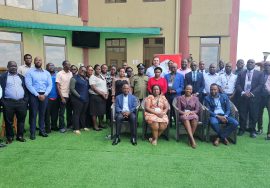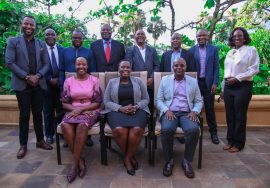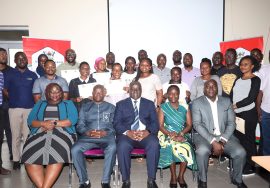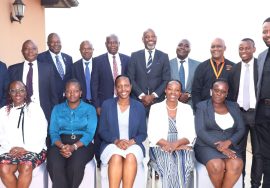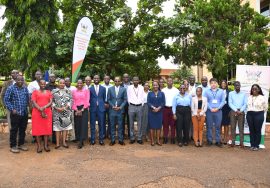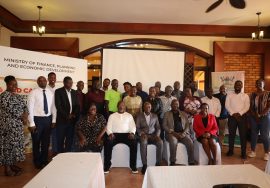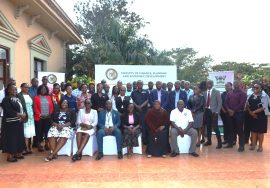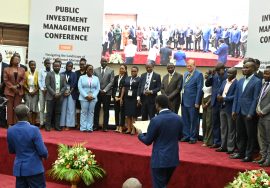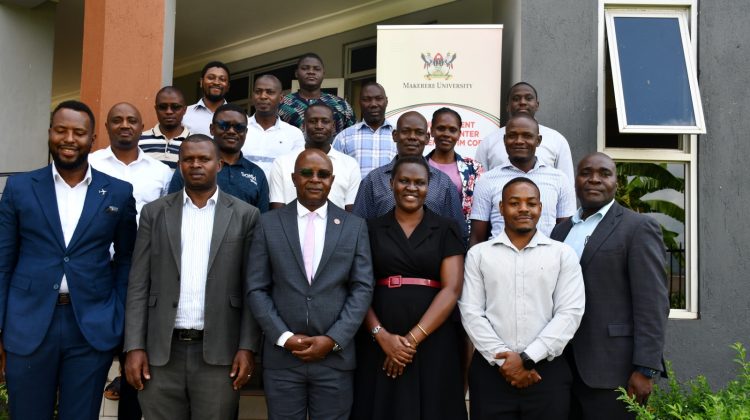
KCCA Officials Begin Two-Week Public Investment Management Training in Jinja
The Public Investment Management Centre of Excellence (PIM CoE), Makerere University, has today, November 17, 2025, officially opened a two-week specialized training in Financial Appraisal and Risk Analysis for officials from the Kampala Capital City Authority (KCCA). The training, fully funded by KCCA, is taking place in Jinja and aims to strengthen the institution’s internal capacity to prepare, analyse, and manage high-quality public investment projects.
The workshop was opened by Prof. Edward Bbaale, Director of the PIM Centre of Excellence and Principal of the College of Business and Management Sciences, who commended KCCA for prioritising continuous professional development in public investment management.
Strengthening Capacity for Better Public Investments
In his opening remarks, Prof. Bbaale expressed deep appreciation to the Ministry of Finance, Planning and Economic Development (MoFPED) for its generous financial support to the PIM Centre of Excellence. He further acknowledged the Ministry’s strategic partnership with Makerere University, which has enabled the Centre to grow into a credible national hub for training, research, and policy dialogue in Public Investment Management.
“This particular cohort is unique and significant,” Prof. Bbaale said. “For the second time, KCCA has fully sponsored its officials to undertake this training, demonstrating strong dedication to improving the quality, efficiency, and overall effectiveness of public investments in the city.”

He thanked Makerere University management, faculty members from Makerere, MoFPED, and the National Planning Authority for their continued dedication to knowledge sharing and national capacity development.
From Theory to Hands-On Project Appraisal
Earlier, Dr. John Sseruyange, Manager of the PIM Centre of Excellence, welcomed participants and outlined the structure and importance of the training programme. He emphasized that governments worldwide increasingly require rigorous financial, economic, and risk appraisal of projects before implementation; a standard that Uganda is actively embracing.
Dr. Sseruyange noted that the training is designed to build practical skills in:
- Preparation of project concepts and profiles
- Financial appraisal and modelling
- Economic appraisal and stakeholder analysis
- Integration of climate change, environmental, and social considerations
- Risk analysis using modern tools and techniques
“Our approach blends theory with hands-on practical sessions,” he said. “By the time you complete this course, you will have acquired skills that you can apply to multiple projects beyond the one you analyse here. The goal is to ensure that you become competent project appraisal professionals capable of supporting your institution and the wider public sector.”
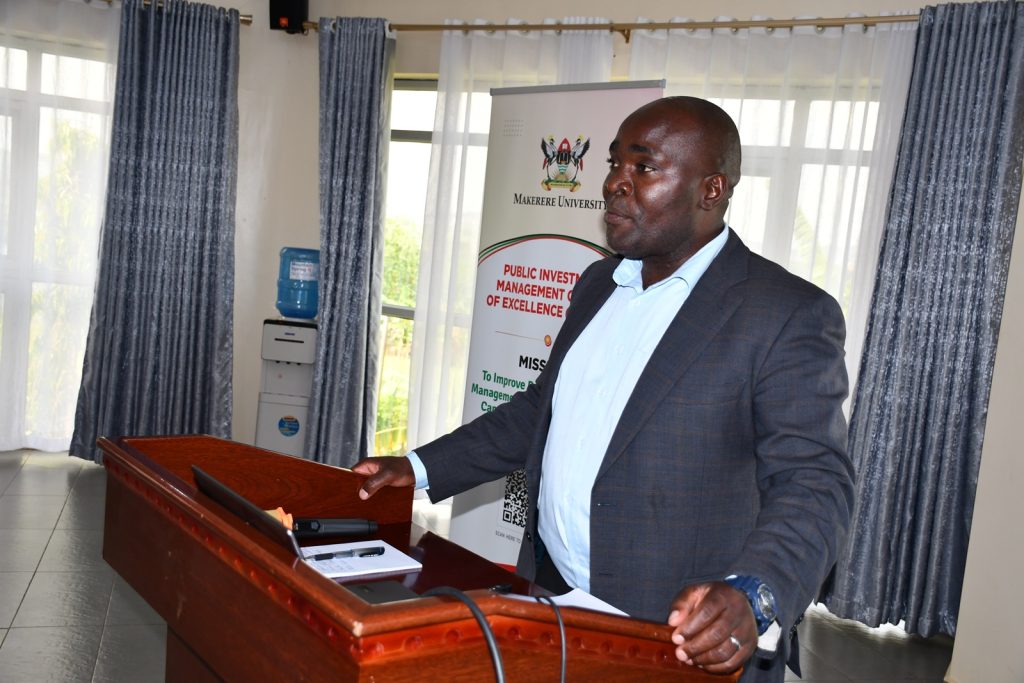
He also highlighted upcoming government requirements starting July 2025, which will extend appraisal to policies, bills, and programmes; skills that participants can also support once trained.
Toward a Stronger Public Investment System
Prof. Bbaale encouraged participants to fully engage in the sessions and take advantage of the opportunity to strengthen their technical competencies. He also invited them to return for the Economic Appraisal module in the near future, after which they will earn a dual certificate issued jointly by Makerere University and MoFPED.
Beyond training, he highlighted the Centre’s recent achievements, including:
- Revision of the Development Committee Guidelines
- Assessment of project performance since NDPI
- Hosting the inaugural Public Investment Management Conferences in 2024 and 2025
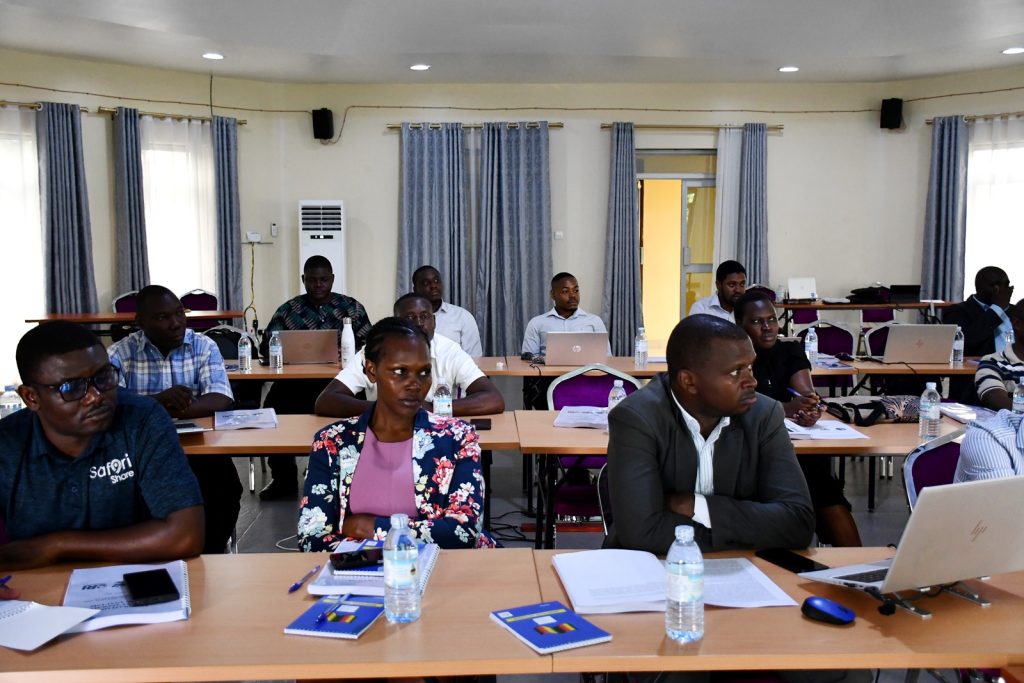
“These efforts demonstrate our commitment to contributing to Uganda’s public investment reform agenda,” he said. “We look forward to partnering with you in research, outreach, and capacity-building initiatives.”
Looking Ahead
The two-week KCCA training marks another milestone in the Centre’s mission to enhance Uganda’s public investment ecosystem. Over the coming days, participants will engage with real-world projects from sectors such as health, roads, education, electricity, water, and energy; equipping them with practical skills essential for driving development in the city and the country. The opening ceremony concluded with a call for collaboration, professionalism, and a shared commitment to improving public investment outcomes for national development.

